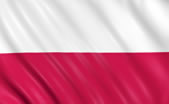Reimbursing pharmaceuticals from public funds
UK
Patients pay a fixed charge per item dispensed under a prescription issued through the NHS. The remainder of the cost of the item is funded by public funds allocated to the NHS. The NHS does not fund the cost of medicine dispensed from private prescriptions. In addition, some pharmaceuticals are not funded by the NHS, such as some travel medication.
Patients may choose to receive treatment that is not funded by the NHS and to pay for such treatment on a private basis.
The treatments that are funded in each area of England may vary. There are many individual NHS Trusts throughout England and each NHS Trust is responsible for making decisions regarding what treatments will be funded for patients in the Trust's local area. In order to ensure a minimum level of consistency, NHS Trusts are required to fund treatments recommended by the National Institute for Clinical Excellence ("NICE"). NICE is a public body funded by the Department of Health, whose role is to help ensure that NHS funds are well spent.
 NICE recommendations are developed after a systematic evaluation of the relevant evidence available on a pharmaceutical. The evaluation takes into account the clinical and cost effectiveness of the pharmaceutical.
NICE recommendations are developed after a systematic evaluation of the relevant evidence available on a pharmaceutical. The evaluation takes into account the clinical and cost effectiveness of the pharmaceutical.
Where a pharmaceutical has not been recommended by NICE, an NHS Trust is free to elect to fund the pharmaceutical. Each NHS Trust may determine its own policies regarding which of these non-recommended pharmaceuticals to fund. In determining whether to fund a pharmaceutical the NHS Trust is expected to have regard to guidance issued by NICE.
Germany
In the last few years, several measures have been introduced to regulate pharmaceutical prices in Germany with regard to reimbursement by statutory health insurance. The law for restructuring the market for pharmaceuticals which is called the German Law for Reforming the Market for Pharmaceuticals (Arzneimittelmarkt-Neuordnungsgesetz), passed by the German Parliament in November 2010, introduced new means of price regulation for recently authorised pharmaceuticals.
Benefit Assessment
An assessment of the benefits of recently authorised pharmaceuticals containing new active substances ("Frühe Nutzenbewertung") pursuant to the German Social Security Act (Fünftes Sozialgesetzbuch, "SGB V") forms the basis for the decision at which price a pharmaceutical company may offer its recently authorised pharmaceutical in Germany. This law came into force as per 1 January 2011 and for the first time obliges pharmaceutical companies to submit a dossier on the benefit assessment when a new product accesses the market in Germany or when new therapeutic indications are authorized.
The regulation sets forth a completely new means of price regulation for recently authorised pharmaceuticals. Here, the competent authority, the Federal Joint Committee ("Gemeinsamer Bundesausschuss"), along with the Institute for Quality and Efficiency in Health Care ("IQWIG"), is given a pivotal assignment: assessing the benefits of recently authorised pharmaceuticals pursuant to SGB V. Since 2011, their findings form the basis for the decision on the level of reimbursement a pharmaceutical company may achieve with its recently authorised pharmaceutical in Germany. This decision has a direct impact on the price at which the product will be offered on the German market.
Reference Pricing
Alongside the benefit assessment for pharmaceuticals containing new active substances, new medicinal products containing active substances already known and on the market are subject to reference pricing ("Festbetragsgruppen") according to SGB V.
Reference prices establish the maximum amount to be paid by the statutory health insurers for a pharmaceutical of a certain group of active ingredients. The reference price group system was introduced by the Health Reform Act (Gesundheitsreformgesetz, "GRG") in 1988 in order to provide a long-term counter to ever-increasing drug expenditures. It is an instrument solely for regulating prices and does not restrict or exclude prescriptions. If a pharmaceutical company does not lower the price of a pharmaceutical to the reference price once it has been classified into a reference price group, the insured person must pay the difference himself.
Rebates

In specific cases German Social Security Law provides for rebates on pharmaceutical prices to be granted to the Public Health Insurers.
Manufacturer Discount
According to SGB V pharmacies have to grant a manufacturer discount amounting to 6% of the sales price to the Public Health Insurer for every distributed medicinal product. The pharmaceutical entrepreneur then has to reimburse the manufacturer discount to the pharmacies. The pricing provisions do not apply if the medicinal products are dispensed by hospital pharmacies or only to hospitals.
Price moratorium
Furthermore, there is a so called "price moratorium" for prescription drugs according to SGB V. Since 1 August 2010, pharmaceutical manufacturers have to grant a price reduction to the public health insurance funds in case they raise the prices for their pharmaceuticals in comparison to the prices since 1 August 2009, by the amount of the price increase.
In addition, pharmaceutical manufacturers have to grant compulsory discounts to the public health insurance funds. Price regulations such as compulsory rebates and the regulations providing for a price moratorium apply only to medicinal products which are distributed through pharmacies to end customers, defined as insured persons in the provisions. The several price regulations therefore do not apply to medicinal products which are used in hospitals and distributed to hospitals only for this purpose and are not distributed by pharmacies to insured persons.
Prices for medicinal products which are delivered to hospitals for clinical use can be freely negotiated between the pharmaceutical entrepreneur and the respective hospital. SGB V on the assessment of benefits of pharmaceuticals and corresponding pricing regulation, does not apply in this regard.
Poland
Reimbursement by state funds is governed by the Act of 12 May 2011 on the reimbursement of drugs, food for particular nutritional uses and medical devices ("Reimbursement Act") and partially by the Act of 27 August 2004 on the financing healthcare services by state funds.
In general, only individuals covered by national medical insurance are entitled to receive pharmaceutical products and healthcare services which are reimbursed by state funds. There are however exceptions to this rule which are provided in the statutes, e.g. for children, pregnant women, etc.
Healthcare services in state hospitals / medical centres, including medicinal products, are provided completely free of charge for beneficiaries. Furthermore drugs, food intended for particular nutritional use, and medical devices reimbursed by the state fund may be assigned to the following categories of reimbursement availability:
Reimbursement category |
Availability to beneficiaries |
|---|---|
Available in pharmacies:
|
Dispensed to beneficiaries:
|
Available within the scope of a drug programme. |
Dispensed to beneficiaries free of charge. |
Available as a drug used in chemotherapy:
|
Dispensed to beneficiaries free of charge. |
Used as a part of healthcare services reimbursed by state funds. |
Dispensed to beneficiaries free of charge. |
The Agency for Health Technology Assessment in Poland (AOTM) is the advisory body to the Minister of Health. The role of AOTM is to assess and appraise all medical technologies and services claiming reimbursement by state funds. Recommendations, statements and opinions issued by the AOTM are based on additional officially published data, experts’ opinions, applicant's submission and evaluation by the Polish National Health Fund.
 AOTM's assessment also includes added context-specific judgments such as: impact of alternative options, social consequences, organisational implications, relative priorities and wider social and ethical aspects.
AOTM's assessment also includes added context-specific judgments such as: impact of alternative options, social consequences, organisational implications, relative priorities and wider social and ethical aspects.
All applicants seeking reimbursement by state funds are obliged to file an application for reimbursement containing:
- information concerning the reimbursement of a product and its price in the other EU Member States;
- analysis of the impact on the budget of the entity responsible for financing healthcare services by public funds (i.e. Polish National Health Fund).
In addition, the applicant seeking the reimbursement of a product, which has no reimbursed equivalent in a given indication, must submit:
- a clinical analysis based on a systematic review in comparison with other medical procedures financed by state funds available for a given clinical condition and the proposed indication;
- an economic analysis from the perspective of the entity responsible for financing healthcare services by state funds, as well as the beneficiary’s perspective;
- an improvement analysis, which has to be submitted in the event the impact analysis on the budget of the entity responsible for financing healthcare services by public funds indicates increased reimbursement costs.
Finally, based on the above mentioned information and other relevant provisions set in the Reimbursement Act, the Minister of Health decides if the product shall be reimbursed by state funds in the form of a decision, which is final. It is important to note that the maximum amount of the official selling price may be limited if the product has a reimbursed equivalent, or other circumstances provided in the Reimbursement Act arise.
Austria
 In Austria, the price of pharmaceuticals is determined by law under the competence of the pricing committee of the Federal Ministry of Health. For innovative medicinal products which shall be included onto the reimbursement list of the Austrian Social Securities Association (ASSA, HVB), the EC average price is relevant. This average price represents the maximum possible selling price ex-works. For pharmaceuticals which are not listed on the reimbursement list the selling, price ex works may be fixed without legal restrictions but has to be communicated to the Federal Ministry of Health. The price of generics that are to be included on the reimbursement list of ASSA is determined by a binding regulation concerning the publication of the reimbursement list (VO-EKO). Prior to an application for reimbursement, a product has to be listed on the product list of the "Apothekertaxe" (the pharmacists' data base).
In Austria, the price of pharmaceuticals is determined by law under the competence of the pricing committee of the Federal Ministry of Health. For innovative medicinal products which shall be included onto the reimbursement list of the Austrian Social Securities Association (ASSA, HVB), the EC average price is relevant. This average price represents the maximum possible selling price ex-works. For pharmaceuticals which are not listed on the reimbursement list the selling, price ex works may be fixed without legal restrictions but has to be communicated to the Federal Ministry of Health. The price of generics that are to be included on the reimbursement list of ASSA is determined by a binding regulation concerning the publication of the reimbursement list (VO-EKO). Prior to an application for reimbursement, a product has to be listed on the product list of the "Apothekertaxe" (the pharmacists' data base).
The reimbursement list is characterised by a box-system:
- Green Box: reimbursement without requirement of prior authorization by social securities
- Yellow Box: authorization by head physician of social securities (the yellow box is further divided into the "light yellow" and the "dark yellow" box.
- Red Box: reimbursement upon ex ante authorization by head physician of social securities. The red box is transitory to the classification into a green or yellow box.
- No Box: List of products which are not reimbursed, mainly lifestyle drugs
If you have any questions on this article or would like to propose a subject to be addressed by Synapse please contact us.


Talitha Shkopiak
Talitha is an associate in the Intellectual Property group based in our London office.

Dr Manja Epping
Manja is a partner and Head of Life Sciences for Germany based in our Munich office.

Agnieszka Deeg
Agnieszka is special counsel in the Pharmaceutical Law group based in our Warsaw office.


